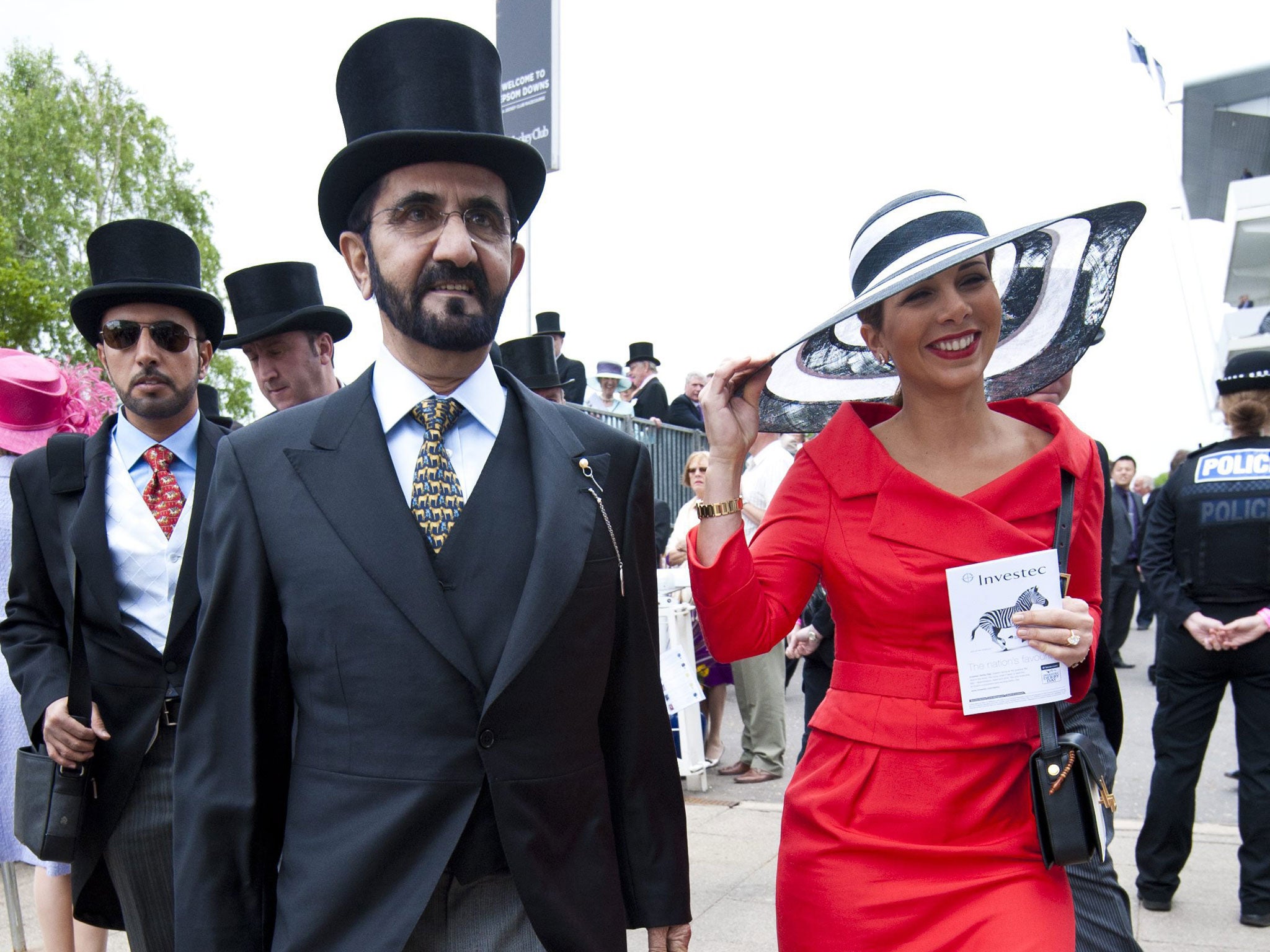Michael Calvin: Tainted brand threatens to push racing on to the rails
If racing wanted a court jester, Ryan Moore was not their man

A horse, a horse, Sheikh Mohammed bin Rashid Al Maktoum would give his kingdom for a Derby-winning horse. He has unlimited power, unfeasible wealth and undeniable influence, but cannot find a thoroughbred to win Britain's richest race in the royal blue colours of Godolphin, the stable which represents Dubai on the world stage.
He has spent billions in pursuit of a simple dream, but finds fate resistant to regal bloodlines, both equine and human. The shock of Dawn Approach, the favourite and his sole representative in the 234th running of the Classic, trailing in last was an exquisitely painful twist to what is turning into an annus horribilis.
Sheikh Mohammed had also to endure the sight of John Magnier, his arch rival, celebrating Ruler Of The World's win. The Irish businessman, whose decision to employ Frankie Dettori to ride Camelot in last year's Prix de l'Arc de Triomphe resulted in the jockey's replacement as Godolphin's top rider, was a study in quiet satisfaction.
"This is what it is all about," he said, with admirable understatement. Dubai's ruler, as ever, kept his own counsel. He had arrived at Epsom with his authority and credibility compromised by the systematic doping programme overseen by Mahmood Al Zarooni, his erstwhile trainer. He left attempting to absorb a fresh blow to his status.
He has tried to limit the fallout from the Godolphin scandal by issuing an edict, imposing an immediate ban on the administration of anabolic steroids on all racehorses in Dubai. He has promised to adhere to the highest ethical and moral standards. Yet the brand is tainted, the emirate is shamed by implication and the future is indistinct. Godolphin may have accumulated in excess of $10 million in winning 49 races worldwide this year, but in his terms, that is loose change.
Jim Bolger, the Irish trainer given the responsibility of providing the Sheikh with his first Derby, had the thousand-yard stare of the terminally surprised. He admitted Dawn Approach was "more or less out of control" after 10 strides of a race initially run at a funereal pace. Jockey Kevin Manning, the trainer's son-in-law, knew he had let a career-defining chance slip.
Ryan Moore, the winning jockey, has a reputation for truculence and disdain for the star system. If racing wanted a court jester to endear himself to a new audience, he was not their man. If it wanted a driven professional, willing to endure the privations of his trade, he was straight from central casting.
Moore, softly spoken in his moment of triumph, scurried away from his public duties as soon as feasible – he had six rides to fulfil at Lingfield. There was little time, and no inclination, for self-indulgence.
Dettori would have responded differently. His return to Epsom on Friday, following the completion of his suspension for cocaine use, merely emphasised racing's instinctive resistance to scrutiny. Ed Dunlop, the first trainer to offer him employment, dismissed "deep and intellectual and unnecessary questions" about his comeback.
He was highlighting a culture which seems unable to comprehend the conventions of modern sport. Had Dettori been an England footballer, he would not have been given such leeway. The knee-jerk assumption he is good for racing because of the theatricality of his nature does not take into account the politically correct climate in which sponsors operate.
The brittleness of his character, revealed by his impatience with questioning before he flew to Paris, where he rides today, is routinely overlooked because of his popularity within an enclosed order. Many in racing rallied around another jockey, Eddie Ahern, when he was banned for 10 years for the ultimate betrayal, of deliberately stopping a horse in a race. In the words of fellow rider Hayley Turner: "He is a nice guy, one of the most popular guys in the weighing room."
Times are changing. The challenge of the Derby remains constant, but its context is evolving. The undulating course, which causes unwary and unbalanced horses to veer towards the rails like pinballs on a three-legged table, remains a definitive test of a colt's stamina and temperament.
Yet its status as a people's event is under threat. Large swathes of heathland opposite the main stands were unoccupied as forecasts of crowds of 120,000 appeared hopelessly optimistic. The traditions of mass entertainment and the antics of assorted stag parties endure, but weight of numbers suggest the occasion is becoming unfashionable.
Racing needs to face the uncomfortable truth it may be drifting further to the margins. There is, though, a democracy of misery. Last night the Sheikh had a sudden affinity with the masses, who can't find a winner for love, or money.
Subscribe to Independent Premium to bookmark this article
Want to bookmark your favourite articles and stories to read or reference later? Start your Independent Premium subscription today.

Join our commenting forum
Join thought-provoking conversations, follow other Independent readers and see their replies